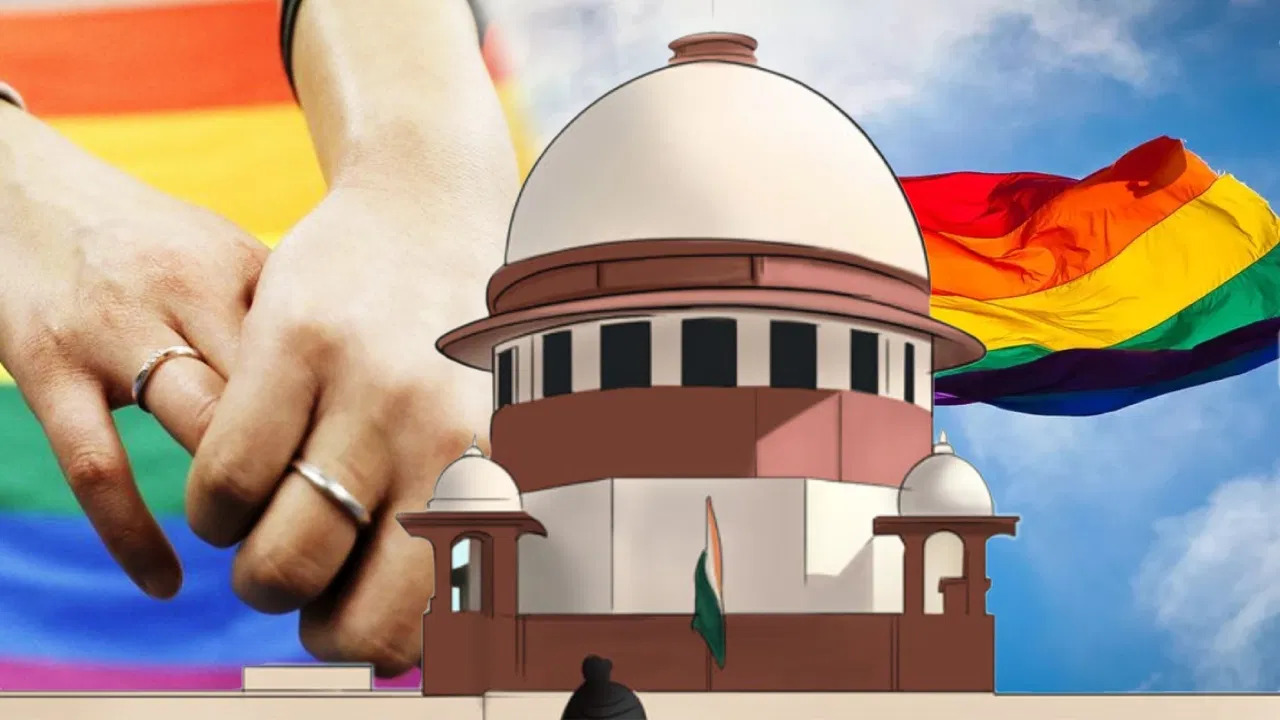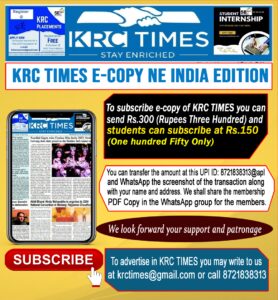In its fresh affidavit filed in the apex court, the Centre said it issued a letter on April 18 to all states inviting comments and views on the “seminal issue” raised in the pleas
 KRC TIMES National Bureau
KRC TIMES National Bureau

New Delhi : The state cannot discriminate against an individual on the basis of sexual characteristic over which the person has no control, the Supreme Court said on Wednesday, asserting the Centre has no data to back up its claim that the concept of same-sex marriage is “elitist” or “urban.”
The apex court was hearing a batch of petitions seeking legal sanction for same-sex marriage. “It is very simple, the State cannot discriminate against an individual on the basis of a characteristic over which the person has no control,” a five-judge constitution bench headed by Chief Justice D Y Chandrachud said on the second day of a day-long hearing on the pleas.
The Centre, in one of its affidavits filed in the apex court, termed the petitions a reflection of an “urban elitist” view for the purpose of social acceptance and said recognition of marriage is essentially a legislative function which the courts should refrain from adjudicating.
Apparently agreeing with the submissions of senior advocate A M Singhi, appearing for one of the petitioners, the bench said, “When you say that this is an innate characteristic then it is also an argument in response to the contention (of the Centre) this is elitist or urban or it has a certain class bias.”
“When something is innate, then it cannot have class bias. It may be more urban in its manifestations because the people in urban areas are coming out of the closed closet. Anyway, no data is forthcoming from the government to indicate that this is urban. No data at all,” observed the bench, also comprising Justices S K Kaul, S R Bhat, HimaKohli and P S Narasimha.
Singhvi stressed that every averment made by the Centre in the affidavit is without a “single survey, single data.” Another senior advocate, K V Viswanathan, who also represented one of the petitioners, said branding the petitioners as “urban elitist” showed an “absolute lack of grace.” “The Union should have shown some grace,” Viswanathan said.
At the start of the day’s hearing, Solicitor General Tushar Mehta, representing the Centre, filed a fresh affidavit urging the bench that all states and Union Territories be made parties to the proceedings as any decision on the issue without obtaining their views will render the present “adversarial exercise” incomplete and truncated.
During the hearing, the bench also deliberated upon the consequences of legalising same-sex marriage including adoption and different marriageable age for male and female.
“Incidentally, even if a couple is in a gay relationship or a lesbian relationship, one of them can still adopt. So the whole argument that this will create a sort of psychological impact on the child is belied by the fact that even today, on the state of the law as it stands, once we have decriminalised homosexuality, it is open to people to live-in together and one of them can adopt. It is just that the child looses the benefit of parenthood so to speak of both the parents,” the CJI said.

The apex court dwelt upon section 4 of the Special Marriage Act, which deals with conditions relating to the solemnization of special marriages and mandates that a male and female must be of the age of 21 and 18 years respectively.
Senior advocate MukulRohatgi, appearing for one of the petitioners, said a bill has been proposed to increase the marriageable age of women to 21 years, and the moment 18 years is made 21, the problem will be solved.
The bench observed it could be a “slightly dangerous argument” and recalled a petition had come before the top court where the issue of marriageable age was raised. It said the court had rejected the petition observing if it holds the provision unconstitutional, there will be no minimum age of marriage.
During the arguments, Rohatgi urged the bench to use its “plenary power, prestige and moral authority” to push the society to acknowledge such a union as would ensure LGBTQIA (lesbian, gay, bisexual, transgender, queer, questioning, intersex, pansexual, two-spirit, asexual, and ally) persons lead a “dignified” life-like heterosexuals.
He said, the State should come forward and provide recognition to same-sex marriage. Rohatgi said LGBTQIA have no representation in Parliament and that is why it is the courts they have to come to.
He said courts have always struck down majoritarian views with regard to fundamental rights and, even if one person is impacted, the action has been struck down. Rohatgi referred to the law on widow re-marriage and said society did accept it then, the “law acted with alacrity” and social acceptance followed.
“Here, this court needs to push society to acknowledge same-sex marriage. This court, besides the power under Article 142 (which provides SC the plenary power to pass any order necessary for doing complete justice) of the Constitution, has moral authority and it enjoys public confidence. We rely on the prestige and moral authority of this court to ensure that we get our right,” Rohagti said during the arguments which will continue on Thursday.
In its fresh affidavit filed in the apex court, the Centre said it issued a letter on April 18 to all states inviting comments and views on the “seminal issue” raised in the pleas.
“It is, therefore, humbly requested that all states and Union Territories be made a party to the present proceedings and their respective stance be taken on record and in the alternative, allow the Union of India, to finish the consultative process with the states, obtain their views/apprehensions, compile the same and place it on record before this court, and only thereafter adjudicate on the present issue,” the affidavit said.



